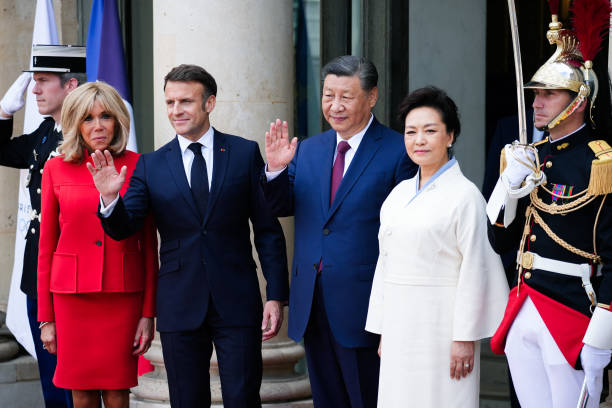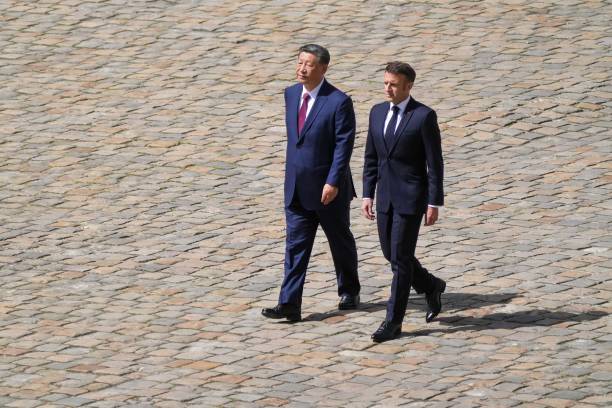During his first trip to Europe in five years, Chinese President Xi Jinping initiated a charm offensive aimed at enhancing China’s relationship with France.
With looming trade tensions with Brussels and accusations of aiding Russia in the Ukraine conflict, Xi’s visit to France appears strategic in countering narratives emanating from the United States and consolidating China’s influence in Europe.

Xi’s agenda includes discussions with French President Emmanuel Macron, focusing on topics such as China’s friendship with Moscow and its role in resolving the war in Ukraine. Macron, while advocating for stronger ties with China, has also emphasized the need for Beijing to address concerns about its support for Russia’s military activities.
Trade issues, particularly concerning Chinese electric vehicles and French brandy, are also on the agenda. Beijing’s threats to impose tariffs on French brandy in response to EU investigations into Chinese EVs pose challenges for both industries.

Despite these challenges, Xi is keen on highlighting the historical ties between China and France as the two nations celebrate 60 years of diplomatic relations. In an opinion column for the French newspaper Le Figaro, Xi expressed commitment to strengthening Franco-Chinese relations and upholding world peace and stability.
While Xi aims to cultivate closer ties with France, he also seeks to ensure European independence, cautioning against external influence, likely referencing the United States. Macron, known for his independent stance on China, has shown willingness to engage with Beijing on trade and investment, albeit with a critical eye on geopolitical issues.
As Xi’s visit progresses, his engagements in Hungary and Serbia will underscore China’s continued alliances in Eastern Europe. Despite geopolitical tensions and trade disputes, Xi’s visit to France signals China’s ongoing efforts to steer complex international dynamics and foster strategic relationships across the continent.
